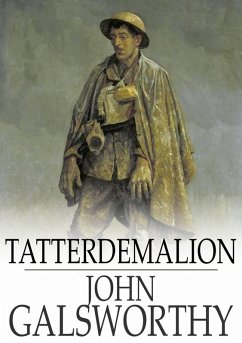
Tatterdemalion (eBook, ePUB)
A Tale of Class Struggles and Societal Norms in the Early 20th Century

PAYBACK Punkte
0 °P sammeln!
In "Tatterdemalion," John Galsworthy presents a poignant exploration of social class, identity, and the nuances of human connection within the turbulent landscape of early 20th-century England. Blending a keen eye for detail with a lyrical style, Galsworthy intricately weaves together the lives of his characters, offering readers profound insights into the struggles faced by the socially marginalized. This evocative narrative, rich in symbolism and social commentary, reflects the author'Äôs critique of prevailing societal mores and his deep sympathy for the disenfranchised, a theme resonant ...
In "Tatterdemalion," John Galsworthy presents a poignant exploration of social class, identity, and the nuances of human connection within the turbulent landscape of early 20th-century England. Blending a keen eye for detail with a lyrical style, Galsworthy intricately weaves together the lives of his characters, offering readers profound insights into the struggles faced by the socially marginalized. This evocative narrative, rich in symbolism and social commentary, reflects the author'Äôs critique of prevailing societal mores and his deep sympathy for the disenfranchised, a theme resonant with the literary currents of the time, defined by realistic portrayals of life'Äôs complexities. John Galsworthy, a distinguished playwright and novelist, was awarded the Nobel Prize in Literature in 1932, a testament to his profound impact on English literature. Galsworthy was born into a wealthy family, yet his experiences of class disparities and the consequences of wealth deeply influenced his views. His commitment to social reform, coupled with his personal encounters with injustice, fueled his passion for storytelling that seeks to illuminate the inequalities of his time, especially in works like "Tatterdemalion." This book comes highly recommended for those interested in early modernist literature and the intersections of social justice and literary artistry. With its evocative narrative and incisive commentary on the human condition, "Tatterdemalion" invites readers to reflect on their own understanding of identity and belonging, making it an essential read for anyone seeking to delve into the heart of Galsworthy'Äôs literary legacy.
Dieser Download kann aus rechtlichen Gründen nur mit Rechnungsadresse in A, B, BG, CY, CZ, D, DK, EW, E, FIN, F, GR, H, IRL, I, LT, L, LR, M, NL, PL, P, R, S, SLO, SK ausgeliefert werden.














